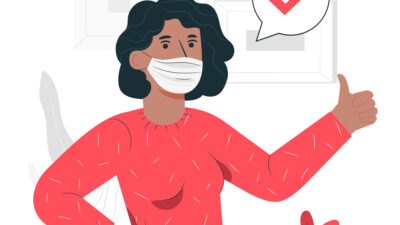Two controversial bills passed the California Assembly on Monday—AB 84 and SB 95. At the heart of each is, yet again, COVID-19 leave.
AB 84/SB 95
This legislation adds two new sections to the California Labor Code. The upshot is that it adds up to 80 hours of supplemental paid sick leave to full-time employees, retroactive to January 1, 2021. It’s not exactly a free-for-all; the employee who seeks retroactive paid sick leave is covered in the following situations:
- The employee is subject to quarantine or isolation related to COVID-19 according to state, federal, and/or local health guidelines.
- The employee has received advice from a health care provider to quarantine because of COVID-related concerns.
- The employee has an appointment to receive a COVID-19 vaccine.
- The employee is experiencing symptoms from the vaccine that prevent work or telework.
- The employee is experiencing COVID-19 symptoms and seeking a COVID test to diagnose.
- The employee is caring for a family member experiencing any of the above.
- The employee is caring for a child whose school or daycare is closed due to COVID-related reasons.
This new legislation applies only to employees of public and private organizations of more than 25 employees. It will remain in effect through September 30, 2021. It also prohibits employers from using any other form of leave (non-COVID sick, vacation, or otherwise) to pay COVID-19 leave. Lastly, it sets the leave compensation rate at the employee’s regular nonexempt rate.
There are many more details worthy of thorough examination. You can read the full analyses of each bill here and here.
CalChamber in Strong Opposition
Communications from CalChamber have encouraged organizations to voice opposition to AB 84/SB 95, voicing concern over retroactive payment and the administrative logjam that may ensue as organizations continue to navigate the coronavirus climate. Our advice has been to document any and all reasons that employees request time off—including for COVID-19 reasons—but it is not unreasonable to imagine that, since California law has not required it, many businesses have not been diligently categorizing such requests. Thus, organizations would be forced to retroactively pay out all sick leave requests since January 1, unless they have documentation that those requests were not COVID-related.
What Should You Do?
Every organization is different, and how you evaluate your own employees’ requests for retroactive COVID-19 leave pay depends on your own record-keeping. Our recommendation is always to document and track all time-off requests and reasons meticulously, whenever possible, precisely to be covered—even in moments of new legislation that involve retroactive pay. For now, it seems, to be on the safe side, you should be prepared to face the reality of paying out COVID leave by at least accounting for all of your employees’ requested time off dating back to Jan. 1.



